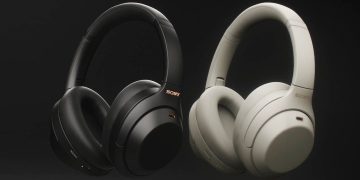Meta has openly expressed its ambition to become “the Android of XR.” Surprisingly, Android XR itself shares this vision too.
Sure, discussions about specifications and features matter, but there’s a more pressing issue that might shape whether Meta can stand its ground against pressures from tech giants like Google and Apple in the XR realm: flat apps.
Flat apps such as Spotify, TikTok, Snapchat, and Discord might not scream excitement when you think of headset usage. Yet, Vision Pro’s support for a vast array of flat iPadOS apps demonstrates the heightened value that comes from integrating familiar apps into the XR arena, rather than isolating us when we slip on a headset. Now, Android XR steps into the same arena by embracing all existing Android apps from the Play Store.
Meta’s devices might be gaming powerhouses, yet it’s apparent that XR’s horizon stretches far beyond just games.
If a company fixates solely on gaming, akin to Nintendo, it likely won’t reach the magnitude of a corporation that’s crafting a multifaceted computing platform, like Microsoft. This differentiation in scope sees Microsoft’s market value soar 43 times over Nintendo’s. While the comparison isn’t entirely apples to apples—considering Microsoft’s broader ventures—it sheds light on the general idea.
So, in the XR space, we have Meta and Google making strategic maneuvers:
1. Meta’s Horizon OS boasts the richest library of immersive apps.
2. Google’s Android XR stakes claim with the most extensive library of flat apps.
For either to truly triumph in XR, they’re going to need a bit of what the other has. But, who’s facing the steeper climb?
The stakes are higher for Meta.
Developers in the immersive space are eager for expansion. If porting a successful game to Android XR means access to an additional 25% of users, the choice is a no-brainer.
Conversely, dominant flat apps like Spotify and TikTok might not see much growth incentive by shifting to Horizon OS. Gaining even 0.25% extra users would be optimistic given their current Android user base.
You may wonder, “Since Horizon OS is Android-based, isn’t porting apps straightforward?” Technically speaking, yes. However, for large apps with massive user numbers and frequent updates, the real hurdle lies in sustained support and upkeep—a hefty commitment.
Naturally, this positions Google more favorably to attract immersive app creators to Android XR than it does for Meta to lure critical flat apps to Horizon OS. Without those flat apps, Meta’s headsets might risk ending up as solely immersive gaming consoles, rather than versatile computing systems.
That’s not the future Meta envisions. The firm jumped into XR a decade ago precisely to establish dominance over XR as the “next computing platform,” preempting an Apple or Google takeover.
Perhaps flat apps aren’t make-or-break for your XR experience, yet one platform bundling both major flat and immersive apps is certain to outshine another that offers merely one type.
Even if Meta consistently delivers superior hardware—imagine headsets that are 20% faster, lighter, and cost-effective compared to Android XR competitors—in the grand scheme, their hardware advantage pales against whether they have those key flat apps in place.
For Meta’s XR dreams, this poses a fundamental threat with no straightforward solution in sight.








![[PS5] Review of Choice of Life: Wild Islands [PS5] Review of Choice of Life: Wild Islands](https://www.nogameover.net/wp-content/uploads/2025/07/PS5-Review-of-Choice-of-Life-Wild-Islands-360x180.jpg)



![[Rewritten title]
PS5 Review: “Cat from Hell” – A Dive into the Cat Simulator](https://www.nogameover.net/wp-content/uploads/2025/07/Rewritten-title-PS5-Review-Cat-from-Hell-–-A-Dive-360x180.jpg)

































